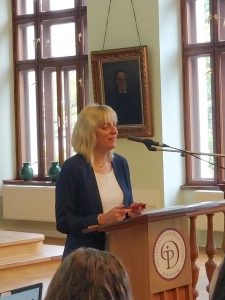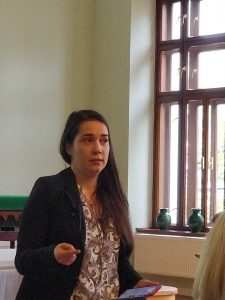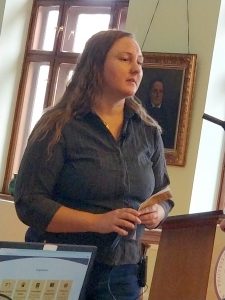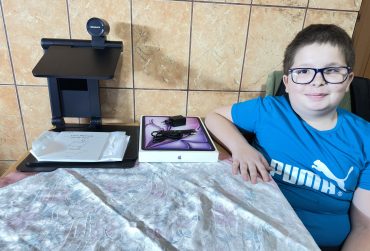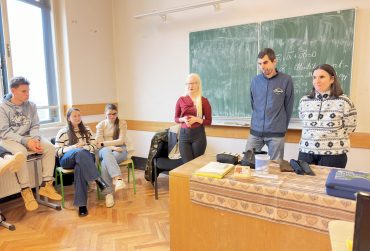On October 12-13, we were guests of the Protestant Theology of Cluj-Napoca, as guests of Dr. Edit Somfalvi, a lecturer of the institution. Orsolya Németh, the professional leader, Anett Puskás, the youth adviser, and Imola Moni, a remedial teacher, also participated as speakers.
On Tuesday, 12 October, a packed and successful lecture took place in the Theology Hall, during which we heard basic information about visual impairment itself, the causes of vision loss, its extent and categories. A blind or partially sighted person may be handicapped, but these handicaps can be overcome, with more and more practice, more and more routinely and naturally. Children and adults with visual impairment do not have to withdraw from family and society. There is no need to give up work or leisure: blind people can participate in any form of social life. More painful and deeper stigmas than real or unreal social stigmas are those that visually impaired people or their immediate environment may bring upon themselves. “Society does not exclude blind people, but blind people exclude themselves from society,” said Csaba Arnold Butu, President of EMLE. You can be in social spaces – virtual or real – and sports facilities from chess to skiing are available for blind people. Audio books, pre-narrated films, accessibility board games, concerts, and almost anything that a sighted person can enjoy. When a blind person becomes isolated, marginalised and leads a passive life, it is most often the result of their own choice. Because the opportunity exists to live a fuller and more normal life, or to create one.
In the words of Anett Puskás, the MVGYOSZ Youth referent, “after I lost my sight, I first had to learn to be visually impaired, then I had to learn to live as a human being”. Overcoming obstacles starts with accepting oneself. This is perhaps the most difficult.
On 13 October, a much more practical session took place with third-year theology students. The students formed groups of two, and after one of the pairs was blindfolded, the other half helped him or her to move around, guiding him or her. Of course, sometimes pushing, pulling, instructing from behind. The experience was elementary, followed by a long recounting of the experience by the students, and then an informal discussion with the professionals.
In fashionable terms, the two days at the Protestant Theology of Cluj were a sensational event. But this is not true, as the audience – both professors and students – reacted very sensitively to the information given. The students, who will soon become priests, pastors, chaplains, spiritual directors, need specific knowledge and information that will help them to live their vocation as good companions, to correctly identify problems and opportunities, to strengthen their faith and to live a normal and fulfilling life. We thank Professor Edit Somfalvi for inviting us, and we thank the faculty and students for their active attention and interest. And we thank the Almighty for allowing us to show ourselves, to report on the current situation of blind children and adults with Hungarian mother tongue. We wish God’s blessing on the life and work of our future pastors and ministers.
Thanks and thanks!

